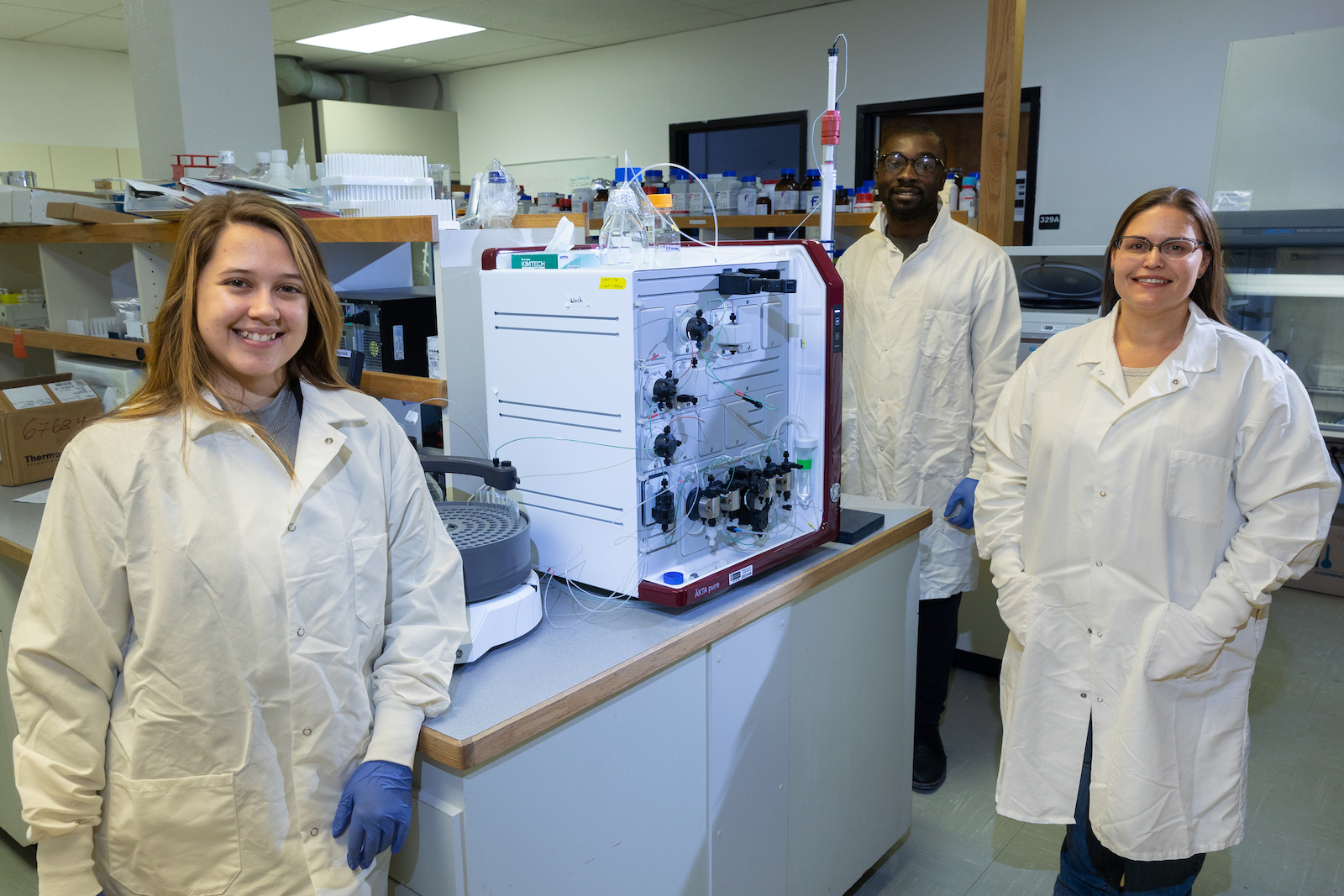Micronutrient Research at Idaho State University May Help Combat Antibiotic-Resistant Bacteria
December 8, 2022

How the human body can gain the upper hand in its battle with bacteria for micronutrients is the focus of some new research by an Idaho State University biologist.
Julia Martin, associate professor in the Department of Biological Sciences, was recently awarded a more than $400,000 grant from the National Institutes of Health. Over the next three years, Martin and students working in her lab will be looking into how fluctuations in the supply of micronutrients - specifically manganese, zinc, and calcium - to Streptococcus pneumoniae affect the bacteria’s physiology.
“When a person or host organism has a bacterial infection, like strep, there is a war going on over micronutrients between the bacteria and the host,” said Martin. “The host can withhold micronutrients and starve the bacteria, or it can poison them by bombarding them with an excess of micronutrients. Bacteria have also evolved their defenses to either acquire more micronutrients from their host when needed or get rid of the excess when they have too much, all to keep things balanced for optimum bacterial growth.”
During their research, Martin and her students will feed cultures of S. pneumoniae differing amounts of manganese, zinc, and calcium. They’ll measure how varying micronutrients impact the bacteria’s ability to grow and reproduce.
“This research will help us understand how bacteria manage their micronutrient needs and to identify the internal mechanisms the bacteria use when they are starved for micronutrients and when they have too much,” Martin said. “We will also be able to see how those same mechanisms may influence how a bacterial infection develops.”
Initial funding for Martin’s research was provided by the Idaho INBRE program and helped to support undergraduate researchers in the lab. One of those students, Crystal Lovato, is on track to earn a pair of bachelor’s degrees from ISU this December in honors microbiology and music. Originally from Boise, Lovato has spent the last two years working on what turned out to be a profoundly personal research project, and her efforts were the subject of her honors thesis defense.
“As someone who has had a lot of complications with lung health, this topic helped me understand and apply biological knowledge to my own experience,” said Lovato. “My work on this research and my mom’s medical struggles inspired me to pursue a doctorate in biomedical research.”
Lovato has already been accepted into one graduate school and is waiting to hear back from a few others before making a choice on where to start her graduate studies in the fall of 2023.
“The fact that I was able to truly build my experience at ISU to what I needed and dreamed of made attending ISU one of the best experiences of my life. Dr. Martin has been the greatest mentor and helped me realize my dreams of helping others through research,” said Lovato. “She nurtured my curiosity, valued my input, and helped me realize my potential and ability. Because of this experience, I feel prepared to move on to graduate school.”
Looking ahead, Martin and her students’ research may aid in creating new treatments for bacterial infections, specifically for bacteria that have become resistant to antibiotics. Citing a study published in The Lancet earlier this year, Nature said globally in 2019, “4.95 million people died from illnesses in which bacterial antimicrobial resistance played a part. Of those, 1.27 million deaths were the direct result of antimicrobial resistance — meaning that drug-resistant infections killed more people than HIV/AIDS (864,000 deaths) or malaria (643,000 deaths).”
“Effective treatments for infections such as strep have become limited because of new multi-antibiotic strains emerging,” said Reuben Opoku, a master’s student studying microbiology from Ghana. “In order to develop new treatments that stop the infection, we must better understand the molecular and cellular processes involved.”
“This type of research into bacteria and micronutrients is in its infancy,” Martin explained, “The knowledge gained will provide other scientists and researchers with a base to build on towards new and effective antimicrobial treatments.”
For more information on the ISU Department of Biological Sciences, visit isu.edu/biology.
Prospective students can schedule a campus tour at isu.edu/visit.
Categories:

